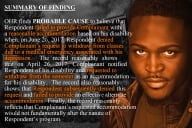You have /5 articles left.
Sign up for a free account or log in.
The coronavirus pandemic has created immense uncertainty about how colleges and universities can and should proceed with open investigations of sexual assault or harassment complaints. Some colleges are finding it impossible to hold in-person hearings with campus closures and “stay at home” orders issued by state and local governments.
On one hand, victims of alleged sexual misconduct on campuses will endure prolonged trauma if investigations are delayed and may never see their cases resolved, advocates for survivors argue. At the same time, students accused of such misconduct could be put at a disadvantage if cases were to proceed through telephone or videoconferences, said Andrew Miltenberg, an attorney whose firm, Nesenoff & Miltenberg LLP, currently represents about 50 students accused of misconduct at institutions across the United States.
Miltenberg sent letters to his clients’ colleges when they began closing their campuses, asking their Title IX officials that handle sexual misconduct and harassment cases to postpone interviews and hearings. He said he contacted Syracuse University, Purdue University and Loyola University of Chicago, among others, and a “great majority” of them decided to proceed with the hearings after no more than a week of delay. If investigative meetings with his clients or witnesses are to take place virtually, investigators will not be able to effectively judge their credibility through nonverbal cues, which would prove “detrimental” to accused students, Miltenberg said.
Anna Rozenich, director of communications for Loyola Chicago, said the university could not comment publicly on individual cases, but it “remains absolutely committed to providing a fair and equitable process for all students even in the face of unprecedented challenges that COVID-19 transmission presents.”
Syracuse is moving forward with investigations “while at the same time working to balance the university’s legal obligation to prevent and redress discriminatory or harassing behavior with the reality of the global pandemic,” Sarah Scalese, senior associate vice president for communications, said in a written statement.
She noted that federal privacy laws prevent universities from commenting on specific cases, but added in the statement, “We are doing everything we can to be flexible and adapt to the challenging environment this pandemic has created while continuing to advance open investigations.”
Processes at Purdue Fort Wayne are being "modified until the university returns to more normal operations," Geoff Thomas, senior director of media relations, said in an email.
"Those who are involved in pending matters have, or will soon, receive notice of the adjustments," Thomas wrote. He added that the university "is putting the health and safety of our campus community first and at this time no in-person meetings are being required.”
Miltenberg said continuing with investigations remotely would be unfair to accused students because the individuals who filed complaints against his clients were granted in-person interviews as part of the process required under Title IX, which prohibits discrimination based on sex at federally funded institutions.
“I don’t think that any person can argue with the fact that as human beings, there is something that we all gain from speaking with someone in person, that we can’t always gain from a telephone call, email, text message or even a videoconference,” Miltenberg said. “That’s an important element of presenting your narrative when you’re an accuser and the accused.”
Ray, a student who graduated from a college in Boston and did not want to be identified beyond her middle name, filed a Title IX complaint in November against a male student who she alleged raped her at his college in Illinois. She said all her interviews with the college's investigators took place over Skype. So her “heart sank” when the college emailed her on Tuesday, informing her of a shelter-in-place order issued for the state, which caused her prehearing meeting to be “postponed to a later date.” Her case “will proceed as soon as the order and outbreak allow,” said the letter, which referred to the college’s student handbook requirement for in-person hearings.
Ray questioned why the college had allowed her to participate in virtual meetings throughout the investigation and now will not proceed over videoconference. She called the decision “inconsistent.”
She said she’ll probably drop the case because of how long it has already taken to move the process forward, even though the college has already concluded its fact finding and told Ray the respondent’s alleged violations could result in his suspension or expulsion, according to the letter.
“They’re obviously giving my assailant the upper hand, and I’m wondering why,” said Ray. “I don’t want this hanging over my head, because it’s weighing on me in a way that’s not productive.”
Delays in cases such as Ray’s will have a number of adverse effects on survivors, said Sarah Nesbitt, a policy and advocacy organizer for Know Your IX, a network of student organizers that supports survivors of sexual violence. The defenders of accused students are “wielding the public health crisis to further strip survivors of their rights and access to education,” Nesbitt said.
“Many survivors that have cases open are on track to graduate this spring. They could be tethered to their university in this very negative way,” Nesbitt said. “Respondents might be able to graduate without the investigation occurring, stripping survivors of their right to even get recourse from their institutions."
Prolonging Title IX investigations or hearings could negatively impact respondents as well, Nesbitt said. Some institutions put holds on the diplomas and transcripts of students involved in sexual misconduct proceedings, which could be problematic for graduating seniors and students applying for graduate school, she said.
Miltenberg agrees that all parties involved in Title IX cases want them finished sooner rather than later, but “the desire for speed or results should not compromise the process,” he said.
Nesbitt said it is shortsighted to entirely dismiss the option of telephone or videoconferencing to move cases forward. She said while it might not work for every situation, such as when either the complainant or respondent has limited access to necessary technology, it’s not impossible to conduct a fair procedure remotely. Videoconferencing is often used for investigations that take place during breaks or while students are studying abroad, Nesbitt said.
Nesbitt recalled being a witness in a Title IX investigation as a student at Washington University in St. Louis. She said she was interviewed by the campus investigator by telephone whille she was on summer break and living in North Texas.
“We can point to the practices of the past,” she said. “Not to say everything is perfect, but it’s not impossible to do fairly.”
Title IX complaints were required to be handled in a more timely fashion before Betsy DeVos, the U.S. secretary of education, rescinded Obama-era guidance recommending that a “typical” investigation of a single incident “takes approximately 60 calendar days following receipt of the complaint.”
A DOE fact sheet from 2017 outlining institutions’ obligation to respond to complaints of campus sexual misconduct states, “There is no fixed time frame under which a school must complete a Title IX investigation.”
This lack of a set time frame has left colleges and universities unsure of how to proceed during the public health crisis, said Steven Richard, lead attorney for the Title IX practice at Nixon Peabody, a law firm that represents dozens of colleges and universities. The language used throughout years of DOE Title IX guidance has required institutions to provide “prompt and equitable” processes for both complainants and respondents, and some institutions have their own flexible student conduct policies that allow for adjustment in times such as these, he said.
For example, the college where Ray filed her complaint includes a provision for “unanticipated delays” that would allow the college to revise the timing of steps in her case and proceed “as quickly as reasonably possible given the circumstances,” according to the college’s handbook. Public institutions especially, which are subject to constitutional due process obligations, share Miltenberg’s concern of fairness in the process and that respondents are given “the opportunity to be heard and confront witnesses” either directly or through an adviser, Richard said.
“Part of the challenge will be that both the complaining student and the responding student have the chance to consult with advisers who may be remote,” Richard said. “That’s the overriding goal, to be ‘prompt and equitable.’ Circumstances have intervened that create very challenging and immediate questions about how you interpret those promises to students.”
Public institutions must also stay up-to-date with federal court opinions that could affect telephone and videoconference capabilities, Richard wrote in an article aimed at clients and colleagues who represent colleges in Title IX matters. The United States Court of Appeals for the Sixth Circuit, which has jurisdiction over Kentucky, Michigan, Ohio and Tennessee, has required institutions to “afford accused students with a right to cross-examine his or her accuser at a hearing,” Richard wrote. Most courts have recognized that these hearings should not be held electronically, Miltenberg said.
Richard has advised his college and university clients “not to stop” ongoing Title IX processes. But he recommends they carefully assess the process, make adjustments and communicate with all parties involved, each step of the way. Institutions have already been under pressure from students claiming in court they were treated unfairly in Title IX processes; the challenges presented by the pandemic could open them up to more legal battles, he said.
Colleges are now looking to the Department of Education to provide some guidance, Richard said. Also weighing on administrators are the department’s pending Title IX rule changes, which could be finalized in the coming weeks and “substantially change” their policies and procedures amid the already-existing difficulties posed by the coronavirus pandemic, he said.
Angela Morabito, press secretary for DOE, declined to comment on the rule and college officials' request for more guidance from the department.
“We would all benefit from some clarity to protect some colleges and institutions, but also all the students,” Richard said. “We’re all trying to figure out where to go and how best to do so, and any clarity, guidance or instruction from the Department of Education would be welcome to define for us what we should be doing moving forward.”








